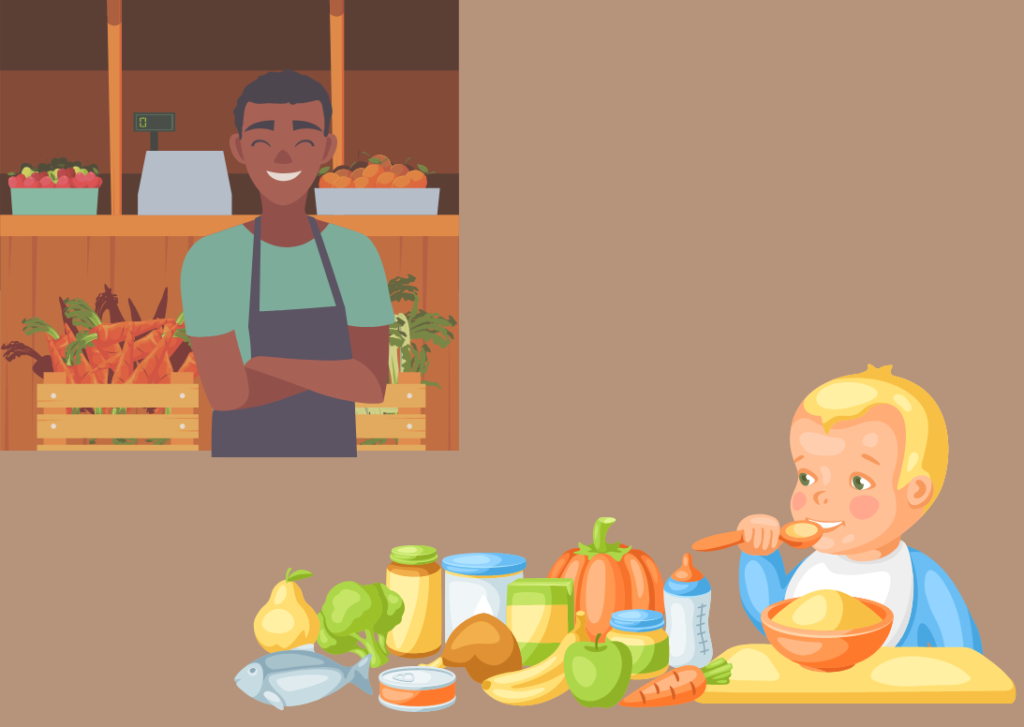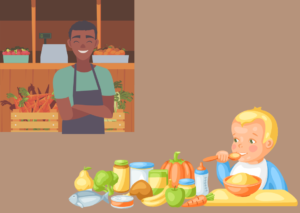My first son came out all white when he was born. At first, I was thrilled that I had such a fresh-looking and cute baby but then I realized the cost of maintaining flawless white skin in a hot, mosquito-friendly, and begrimed environment. I had to become extremely maternal in his choice of food, cosmetics, and clothing.
Not minding the cost, I bought the best baby food products like Gerber; patronised top recommended body creams like Aveeno and Sebamed and even shopped for fruits that were from the imported list after all, he was “Oyibo”. Soon he started having clusters of boils that looked so red but refused to have an eye. The clutters later became carbuncles and they kept reoccurring. I was the super mom and a neat freak when it came to his hygiene; how then did I go wrong?
Private and general hospitals soon became our most visited sites in his first year. We had become regular “customers” and my little Oyibo was the favourite of many nurses and doctors who had a lot of advice to give on how to keep him white, under a hot climate. Motherhood became a herculean task for me. He always wore socks even in the sunniest of weathers just to keep the insects at bay. Some stubborn ones still found their way to his creamy flesh. His carbuncles did not disappear either. Perhaps the beefers had cast a spell on him.
Then, I decided to see a family doctor in our locality. It was the only hospital close to our home but Dr Emerson was not as friendly as the previous doctors. He told me the gospel truth that I was feeding my baby mostly junk. His diet used to be full of processed food and I explored only little of local baby foods. He reminded me of one fact I had forgotten — My little one has Nigerian blood running through his veins and he lives in Nigeria. How did I expect him to thrive with the foreign nutrition I had placed him on? He explained that, though highly recommended, some of those foreign products I buy contain allergens and my oyibo could be reacting to them.
I smelt beef! Haters, I thought to myself. He was just jealous. As if he had read my mind, the doctor advised that I made my cereal from yellow corn, guinea corn, and millet with a little ginger for flavour. In addition, I should add blended dried unripe plantains, crayfish, soya milk and sometimes peanuts (but in little quantities to ascertain he does not have allergies to them). Then he advised me to discard the foreign baby milk I prided in, to go for locally made milk like Peak or My Boy. For choice of cosmetics, I was urged to try coconut oil or other essential oils mixed with original shea butter. How dare he suggest that for my oyibo? I had little choice anyway because I needed to stop the carbuncles as they were leaving behind freckle-like scars on his skin.
Fortunately, I tried the new formula and it worked like magic. My little one reduced weight. (His weight used to worry me a bit! Lol.) The boils stopped appearing, his immune system got stronger and we had fewer visits to the hospital. His skin took on a tougher yet smooth look. The scars from the boils were dispelled into tiny dark spots that looked like birthmarks. Most importantly, the local foods were cheaper, sufficient in quantity and had a richer taste.
Eventually, I came out of my superficial world of adulterated education that the best things are foreign while our local products have low quality. One thing I would never compromise anyway was exclusive breastfeeding. I had made a resolve to go through the process through thick and thin with all my kids and it worked for me. I would say nature was designed to meet the needs of each nation with its unique features.
My main concern, however, is how so many people have replaced homegrown foods with imported foods some of which have lost their natural value and taste to time, storage and distance. Although it is not widely propagated, homegrown foods are proven to be of more nutritional value than imported foods. As it is popularly said, ‘You can’t cheat nature. ‘ The soil where people originate from was designed to meet the needs of its inhabitants. This does not negate cultural integration or adaptation but I strongly believe there is a connection between the land and its occupants so much that, the best you need for your body system to function well is the soil designed to nourish it.
Taking Nigeria as a case study, our weather conditions (rainy and dry seasons) have different foods and fruits attached to them while some are available all year round. Agbalumo, carrots and many citrus fruits, for instance, can be bought in large quantities during the dry season. Everyone knows the dry season comes with its kind of illnesses such as sore throat, coughs and eye infections that require high doses of vitamin C-related foods, so the land produces foods that the body needs mostly. There might not be very strong reasons to consume corn during rainy seasons but the vitamins and antioxidants in corn give the body the immune support it needs during the rainy season. Besides, who would not love hot corn in cold weather?
So, when next you go shopping for foodstuffs, try to visit the local markets and stock up your kitchen with those fresh homegrown foods instead of consuming a whole lot of refined, over-processed foods. If not for any other reason, do it to boost our nation’s economy and help the local farmers to grow more food.







